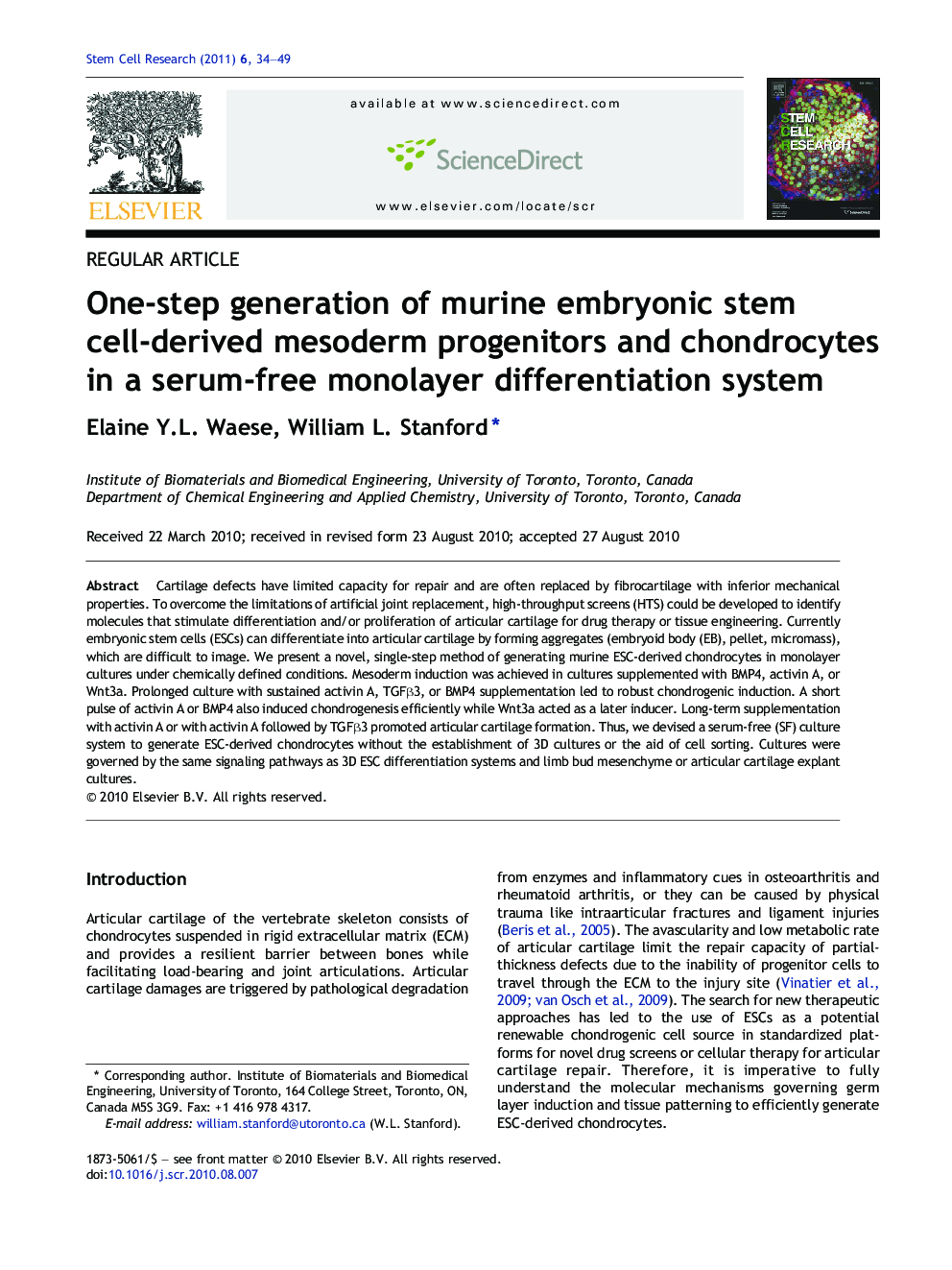| Article ID | Journal | Published Year | Pages | File Type |
|---|---|---|---|---|
| 10891347 | Stem Cell Research | 2011 | 16 Pages |
Abstract
Cartilage defects have limited capacity for repair and are often replaced by fibrocartilage with inferior mechanical properties. To overcome the limitations of artificial joint replacement, high-throughput screens (HTS) could be developed to identify molecules that stimulate differentiation and/or proliferation of articular cartilage for drug therapy or tissue engineering. Currently embryonic stem cells (ESCs) can differentiate into articular cartilage by forming aggregates (embryoid body (EB), pellet, micromass), which are difficult to image. We present a novel, single-step method of generating murine ESC-derived chondrocytes in monolayer cultures under chemically defined conditions. Mesoderm induction was achieved in cultures supplemented with BMP4, activin A, or Wnt3a. Prolonged culture with sustained activin A, TGFβ3, or BMP4 supplementation led to robust chondrogenic induction. A short pulse of activin A or BMP4 also induced chondrogenesis efficiently while Wnt3a acted as a later inducer. Long-term supplementation with activin A or with activin A followed by TGFβ3 promoted articular cartilage formation. Thus, we devised a serum-free (SF) culture system to generate ESC-derived chondrocytes without the establishment of 3D cultures or the aid of cell sorting. Cultures were governed by the same signaling pathways as 3D ESC differentiation systems and limb bud mesenchyme or articular cartilage explant cultures.
Related Topics
Life Sciences
Biochemistry, Genetics and Molecular Biology
Biotechnology
Authors
Elaine Y.L. Waese, William L. Stanford,
